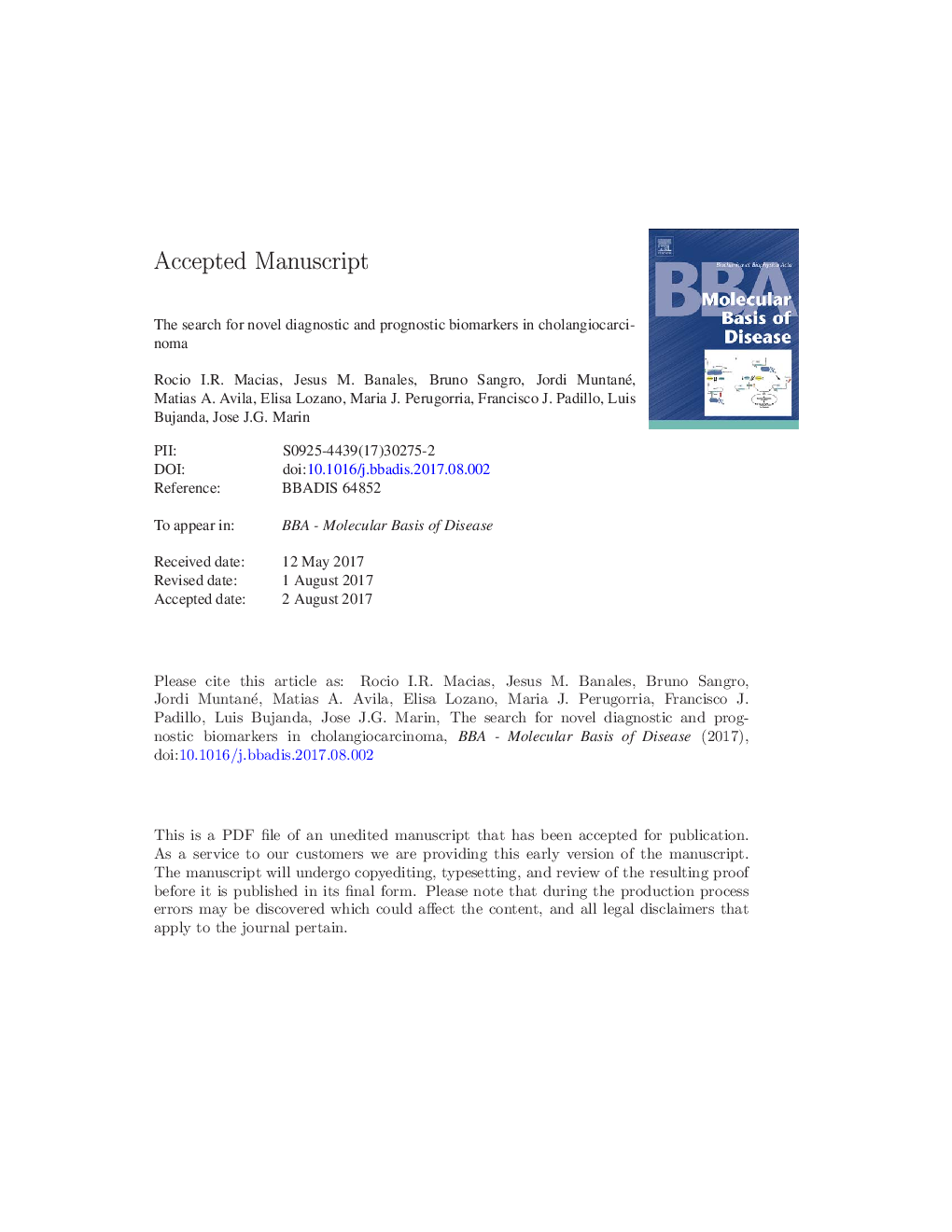| Article ID | Journal | Published Year | Pages | File Type |
|---|---|---|---|---|
| 8258537 | Biochimica et Biophysica Acta (BBA) - Molecular Basis of Disease | 2018 | 32 Pages |
Abstract
The poor prognosis of cholangiocarcinoma (CCA) is in part due to late diagnosis, which is currently achieved by a combination of clinical, radiological and histological approaches. Available biomarkers determined in serum and biopsy samples to assist in CCA diagnosis are not sufficiently sensitive and specific. Therefore, the identification of new biomarkers, preferably those obtained by minimally invasive methods, such as liquid biopsy, is important. The development of innovative technologies has permitted to identify a significant number of genetic, epigenetic, proteomic and metabolomic CCA features with potential clinical usefulness in early diagnosis, prognosis or prediction of treatment response. Potential new candidates must be rigorously evaluated prior to entering routine clinical application. Unfortunately, to date, no such biomarker has achieved validation for these purposes. This review is an up-to-date of currently used biomarkers and the candidates with promising characteristics that could be included in the clinical practice in the next future. This article is part of a Special Issue entitled: Cholangiocytes in Health and Disease edited by Jesus Banales, Marco Marzioni, Nicholas LaRusso and Peter Jansen.
Keywords
MOCOmics5-FUDCCAPCCAEVSPSCiCCACCACTCsnuclear magnetic resonanceAUCHCCcarbohydrate antigenepithelial to mesenchymal transitionBiomarkerDifferential diagnosisNMRCirculating tumor cellsEMTExtracellular vesiclesBiliary cancerLiver cancerMass spectrometry5-fluorouracilarea under the receiver operating characteristic curveHepatocellular carcinomaPrimary sclerosing cholangitisIntrahepatic cholangiocarcinomaCholangiocarcinomaperihilar cholangiocarcinomadistal cholangiocarcinoma
Related Topics
Life Sciences
Biochemistry, Genetics and Molecular Biology
Ageing
Authors
Rocio I.R. Macias, Jesus M. Banales, Bruno Sangro, Jordi Muntané, Matias A. Avila, Elisa Lozano, Maria J. Perugorria, Francisco J. Padillo, Luis Bujanda, Jose J.G. Marin,
